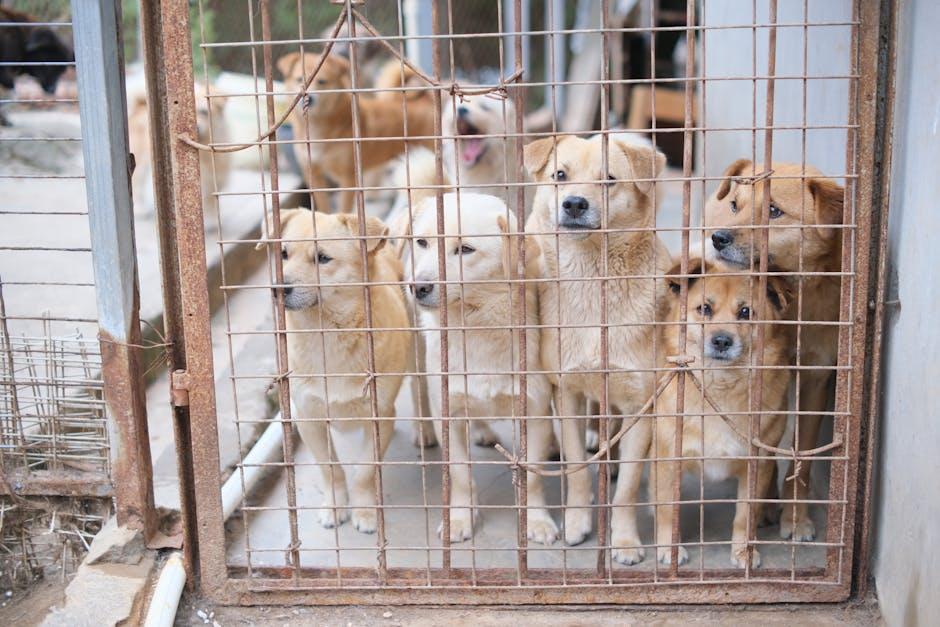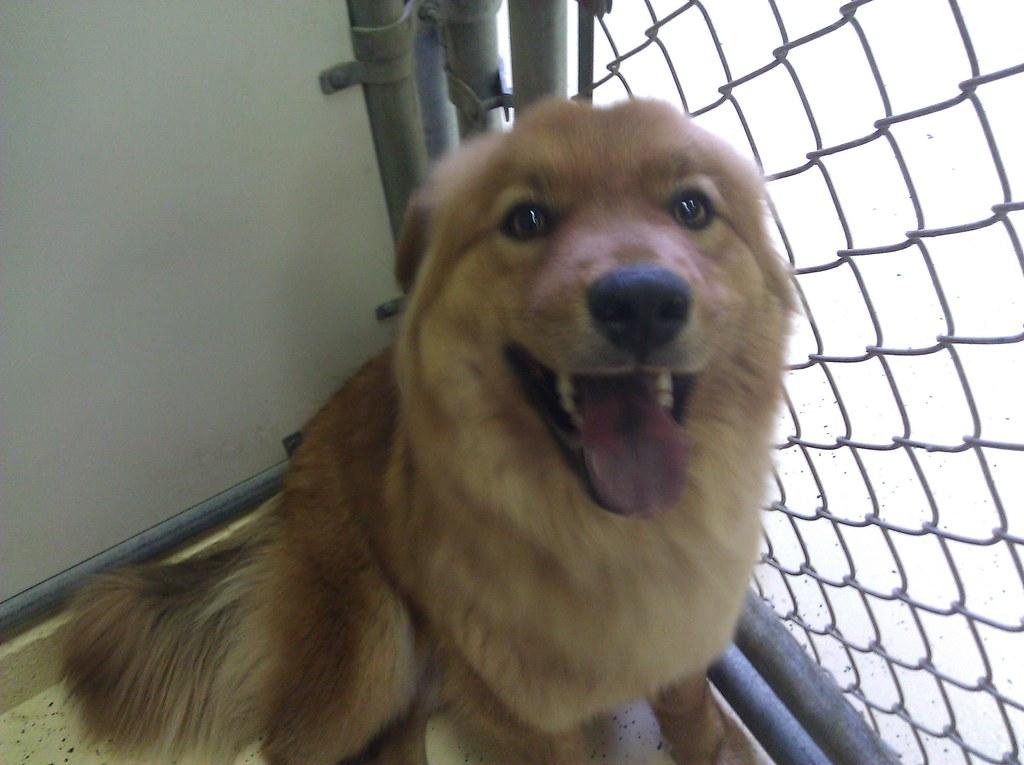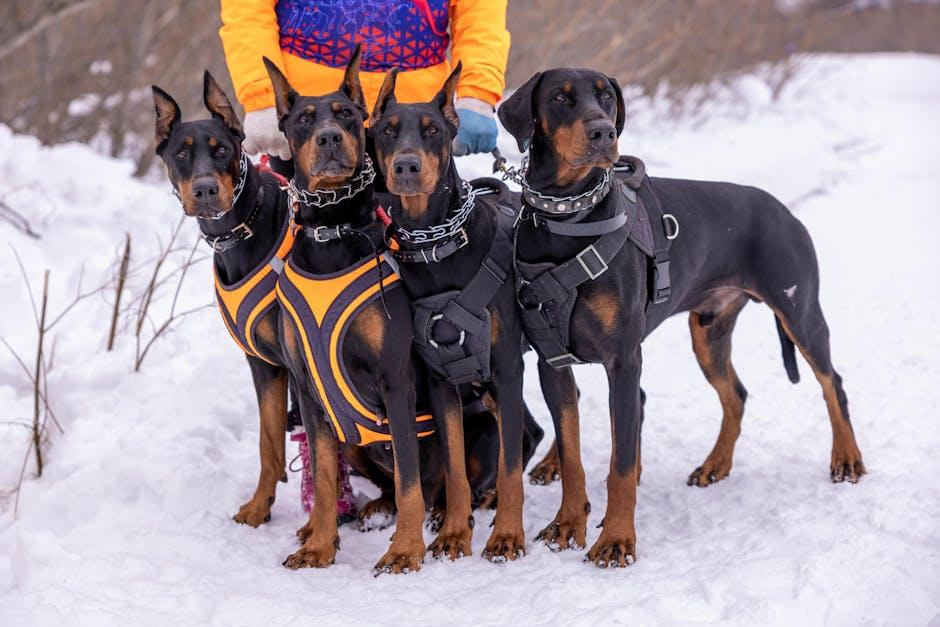Can Socialization Help Rescue Dogs With Severe Anxiety

In a world where wagging tails and gentle nudges often bring comfort and joy, there exists a group of four-legged companions whose past experiences cast long shadows over their present lives. These are the rescue dogs with severe anxiety, whose eyes tell stories of uncertainty and fear. As they journey from shelter to sanctuary, a crucial question emerges: can the power of socialization serve as a bridge to healing? This article delves into the transformative potential of social interactions, exploring how companionship, patience, and understanding might unlock the doors to a more peaceful existence for these troubled yet hopeful souls. Through the lens of expert insights and heartwarming anecdotes, we unravel the complexities of canine anxiety and the role that socialization may play in crafting a brighter future for our furry friends.
Understanding the Roots of Canine Anxiety in Rescue Dogs
Rescue dogs often carry with them a complex tapestry of experiences that can manifest as anxiety, stemming from past trauma, neglect, or inconsistent environments. Understanding the roots of this anxiety is crucial for effective socialization. These dogs may have faced:
- Inadequate early socialization: Puppies who miss out on positive interactions during their critical development periods may struggle with anxiety later in life.
- Traumatic experiences: Events such as abandonment, abuse, or natural disasters can leave lasting psychological scars.
- Lack of routine and stability: Constant changes in their living situation can lead to a heightened state of alertness and stress.
Addressing these root causes involves creating a supportive environment where the dog can gradually acclimate to new stimuli. Through controlled exposure to various social settings, and with the help of positive reinforcement techniques, rescue dogs can begin to rebuild trust and confidence. By patiently guiding them through interactions with people and other animals, we help them rewrite their narrative, transforming fear into curiosity and anxiety into assurance.

The Role of Socialization in Alleviating Fear and Stress
Socialization plays a pivotal role in reshaping the experiences of rescue dogs with severe anxiety. By gradually introducing these dogs to a variety of environments, people, and other animals, we can help them build confidence and reduce their fears. The process requires patience and a keen understanding of the dog’s unique needs. This often involves creating a safe space where the dog feels secure and using positive reinforcement to encourage interaction. Over time, these experiences can help rewire their responses to previously stressful situations, making the world a less intimidating place.
There are several key benefits to incorporating socialization into the rehabilitation of anxious rescue dogs. These include:
- Improved Trust: Regular, positive interactions help foster trust between the dog and its caregivers.
- Enhanced Coping Mechanisms: Dogs learn to manage their anxiety in different situations, reducing their overall stress levels.
- Better Adaptability: Exposure to diverse scenarios helps dogs become more adaptable and less reactive to change.
With a consistent and compassionate approach, socialization can transform the lives of these dogs, offering them a chance at a happier and more balanced existence.

Practical Strategies for Introducing Anxious Dogs to New Environments
When introducing anxious dogs to unfamiliar settings, it’s essential to approach the process with patience and understanding. Begin by selecting a calm and controlled environment that minimizes overwhelming stimuli. This could be a quiet room in your home or a peaceful park during off-peak hours. Gradually introduce your dog to new environments, ensuring each step is associated with positive experiences. Offer plenty of treats and praise to reinforce calm behavior and create a sense of safety.
Consider using desensitization techniques to help your dog adjust. Start with short visits to the new environment, slowly increasing the duration as your dog’s comfort level improves. Use a favorite toy or blanket to provide a familiar scent, offering reassurance amidst new surroundings. Additionally, routine and predictability can be powerful allies. Establish a consistent schedule for outings, so your dog knows what to expect, reducing anxiety triggers. Remember, each dog is unique, so tailor these strategies to suit their individual needs and pace.
Building Trust: Creating a Safe Space for Rescue Dogs
Rescue dogs often carry with them a tapestry of past experiences that can manifest as severe anxiety. For these dogs, the journey to healing and trust-building can be profoundly transformative when approached with thoughtful socialization. This process goes beyond simple interactions; it involves creating an environment where the dog feels secure and understood. The foundation of socialization is built on consistent exposure to a variety of environments, people, and other animals in a controlled and positive manner. It’s about crafting a world where the dog can experience new situations without fear, gradually learning that the world isn’t as daunting as it seems.
- Gentle Introduction: Start with calm and controlled settings, allowing the dog to observe without pressure to engage.
- Positive Reinforcement: Reward calm behavior with treats or affection to reinforce the idea that new experiences can be pleasant.
- Routine Establishment: Dogs thrive on routine. Consistent daily activities can provide a sense of predictability and safety.
- Patient Progression: Allow the dog to set the pace. Forcing interaction can lead to setbacks rather than progress.
- Professional Guidance: Enlist the help of a professional dog trainer or behaviorist, especially when dealing with severe anxiety.
Through these carefully curated steps, socialization can serve as a powerful tool to help rescue dogs overcome anxiety. With time, patience, and understanding, these dogs can learn to navigate the world with confidence, building a lasting trust with their human companions.
To Wrap It Up
In the intricate dance between humanity and its loyal companions, the question of alleviating anxiety in rescue dogs through socialization emerges as both a challenge and an opportunity. As we explore this path, it becomes clear that each dog, with its unique history and temperament, requires a tailored approach. The journey may be fraught with trials, but the potential for transformation is profound. With patience, understanding, and the right socialization strategies, we can help these animals not only overcome their fears but also thrive in their new environments. As we continue to unravel the complexities of canine anxiety, let us remain committed to offering a compassionate hand, ensuring that every rescue dog finds not just a home, but a haven of peace and belonging.



